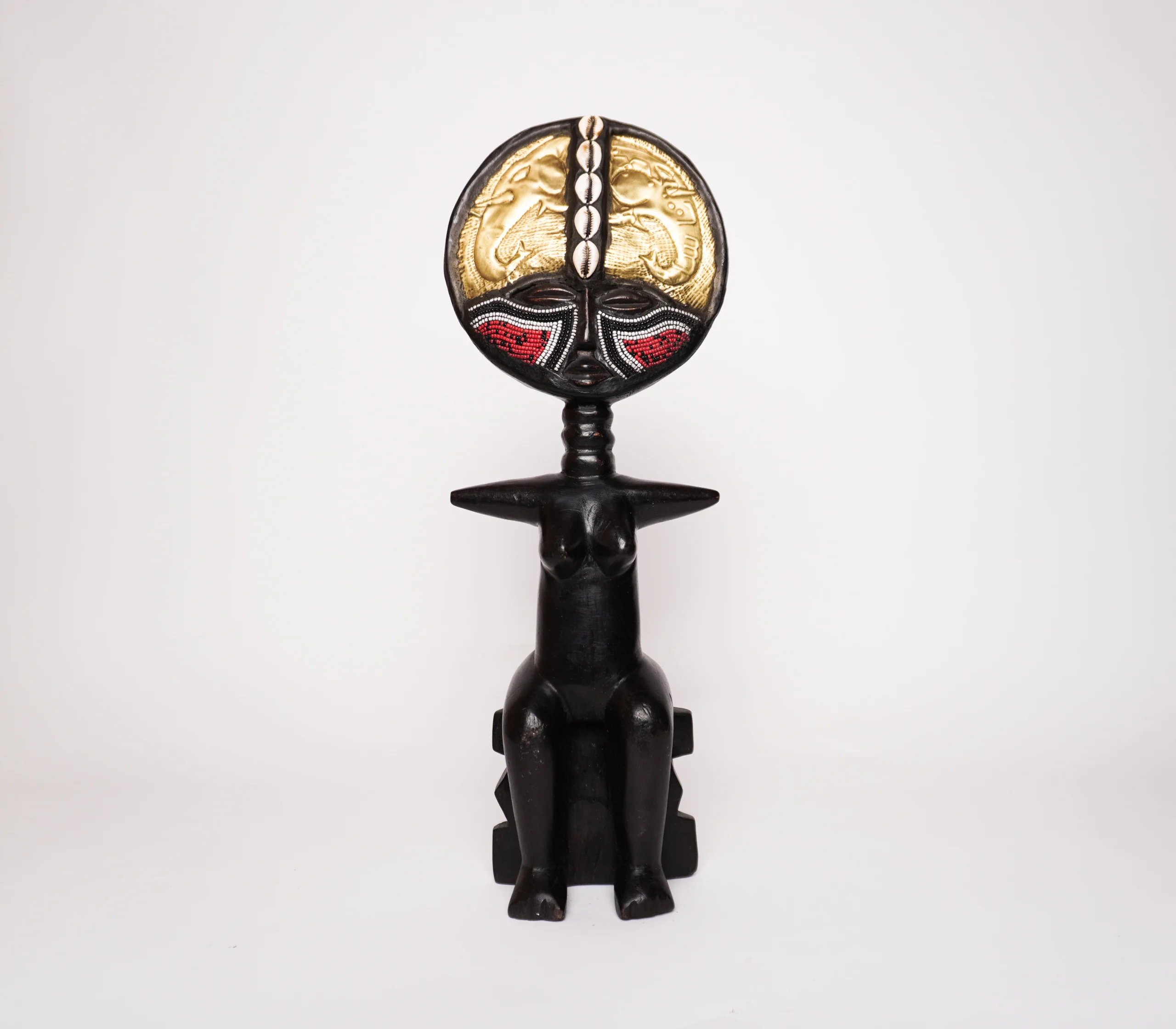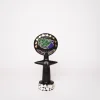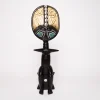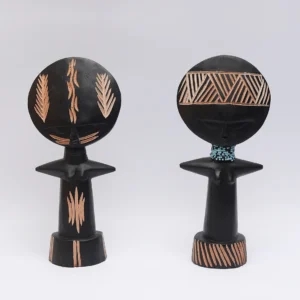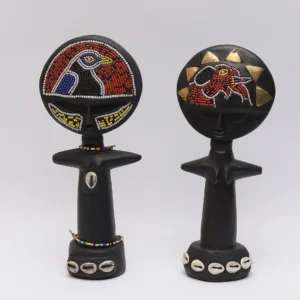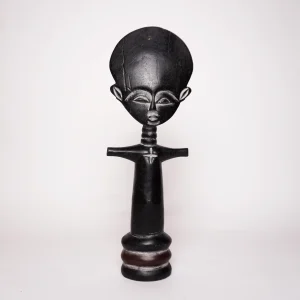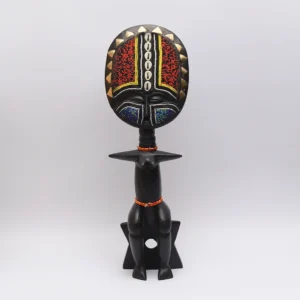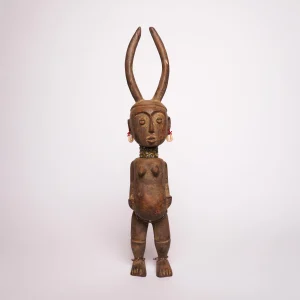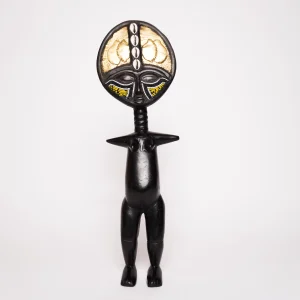Ghana Wooden Ashanti Sitting Doll (Akua’ba Figure) The Ghana wooden Ashanti sitting doll, commonly known as an Akua’ba (or Akua’ba figure), is a traditional fertility sculpture originating from the Akan people, particularly the Ashanti of Ghana. These handcrafted wooden dolls are not simple playthings—they hold deep spiritual and cultural importance, especially for women desiring children or seeking safe childbirth. Detailed Overview: Symbolic Purpose: Akua’ba dolls are revered as fertility symbols, believed to help women conceive and carry a pregnancy successfully. They are often part of rituals and prayers related to motherhood and family blessings. Distinctive Appearance: These figures are easily recognized by their flat, disc-shaped heads, high foreheads, and ringed necks—all representing traditional ideals of beauty and prosperity. The body is typically column-like, with short, outstretched arms and subtle feminine features. Cultural Practice: Traditionally, women carry the doll on their backs wrapped in cloth—mimicking how a baby is held. This ritual act symbolizes care, devotion, and hope for motherhood. The belief is that treating the doll with love and respect will bring good fortune and healthy offspring. Beyond Fertility: Akua’ba dolls also serve as educational tools for young girls, helping them learn nurturing behaviors by observing how mothers interact with the figures. After childbirth, some dolls are passed down to children as cherished toys, continuing their life as symbols of protection and growth. Design Variations: While most Akua’ba dolls feature the classic disc-like head, variations exist—some may have rounded heads or depict mother-and-child figures, reinforcing the doll’s connection to maternal care and the family unit.
Related products
- USD: $102.10
- USD: $183.77
- USD: $219.51
- USD: $189.91
- USD: $237.39
- USD: $160.64
- USD: $237.39
- USD: $160.64

